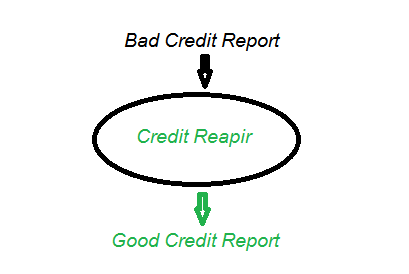Why Credit Repair is important and How to Fix Bad Credit
What are credit repair essentials and how to fix bad credit
Credit Repair is considered by borrowers as:
- ensuring that information in their credit reports is accurate
- disputing erroneous items with the credit reporting agencies
Beware of credit Repair Scams. If you find offers of the nature below beware:
- The company wants you to pay for credit repair services before they provide any services. Under the Credit Repair Organizations Act, credit repair companies cannot require you to pay until they have completed the services they have promised.
- The company doesnt tell you your rights and what you can do for yourself for free.
- The company recommends that you do not contact any of the three major national credit reporting companies directly.
- The company tells you they can get rid of most or all the negative credit information in your credit report, even if that information is accurate and current.
- The company suggests that you try to invent a new credit identity and then, a new credit report by applying for an Employer Identification Number to use instead of your Social Security number.
- The company advises you to dispute all the information in your credit report, regardless of its accuracy or timeliness.
If you follow illegal advice and commit fraud, you may find yourself in legal hot water, too: Its a federal crime to lie on a loan or credit application, to misrepresent your Social Security number, and to obtain an Employer Identification Number from the Internal Revenue Service under false pretenses. You could be charged and prosecuted for mail or wire fraud if you use the mail, telephone, or Internet to apply for credit and provide false information.
How to fix a bad credit
Request a copy of your credit report from a credit bureau. If there is an error, write to the bureau and ask it to fix the mistake. It might also help to contact the creditor who reported the error. Some creditors will contact the bureau on your behalf.
If the bad marks on your credit report result from outstanding debts, repay them as quickly as possible. Pay off those with the highest interest rates first.
If your debts are overwhelming, contact a nonprofit credit-counseling organization to work out a debt-consolidation plan. A counselor will help you consolidate your debts and will contact your debtors on your behalf to reduce or eliminate finance charges. This can reduce your monthly payments by up to 40 percent.
Steer clear of any services that offer you credit-repair or debt-consolidation loans. These companies will plunge you further into debt. Be suspicious of any company that advertises aggressively or sends unsolicited mail or e-mail.
Close your credit accounts and cut up the cards. Sell valuables or liquidate assets that will help you repay your debts. Buy the bare essentials (food and gas) and use the rest of your earnings to pay off your consolidated debts.
Work with your credit counselor to repay all of your debts. Meanwhile, live a life that will help you re-establish good credit. Pay rent and utilities or mortgages promptly, keep the same residence and job, maintain savings and checking accounts, set a budget and stick to it.
Once you have repaid your debts, apply for a new credit card to build a good credit history. It might be easier initially to get a department-store or gasoline credit card or one from an employee credit union.
Promptly pay off the balance of the credit card monthly to build good credit. Use the card responsibly
If you don’t qualify for a regular credit card, apply for a secured one. With a secured credit card, you fund an account up front and then “charge” expenses on it. This card will show up as a credit card on your credit report and, if used responsibly, can help you build a good credit history
More credit repair info

